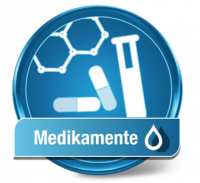Tap water - good to know
During controls in the canton of Zurich in 2019, residues of the carcinogenic substance chlorothalonil were found in tap water. The pesticide was present in an increased dose in one of three samples taken. Such threshold values are exceeded again and again. Should one now be afraid to drink tap water?
Should you drink tap water?

The tap water provided in Switzerland meets very high quality standards and is considered the best controlled food in Switzerland. In order to be considered drinking water, the water must meet the strict requirements of the TBDV (EDI ordinance on drinking water and water in publicly accessible bathrooms and shower facilities). Almost two thirds of the Swiss population regularly drink tap water, every second person several times a day. The water quality requirements have risen sharply in recent years. The strict control of the tap water makes it possible to drink tap water without hesitation in most cases.
However, tap water is contaminated from time to time. This is mainly due to the fact that the water supplier is only responsible for the drinking water quality up to the water meter. However, pollution can also enter the tap water later via the house pipes. It can therefore be useful to test the tap water regularly.
Where does the tap water come from?
In Switzerland, tap water comes from:
➔ 40% spring water
➔ 40% groundwater
➔ 20% surface water
Due to the geological setup of Switzerland, it is possible that approx. 60% of the water obtained is of perfect quality already and does not even need to be treated! Lake water that is used for drinking water purposes, however, undergoes a multi-stage, cost-intensive treatment. After thorough controls, the drinking water obtained that way then reaches the end user via a widely branched distribution network.
Why does it make sense to test your tap water?
According to Swiss law, the water supplier is only responsible for the perfect water quality up to the water meter. However, impurities can still get into the water afterwards.
Why should you test your own tap water regularly?
Often, contaminants in water come from the following sources:
➔ Water taps (e.g. fittings with a hose), jet regulators (aerator)
➔ Water pipes (seals, leaks, cracks, pipe material)
➔ water filters
➔ Water heater (drinking water heater, drinking water storage tank)
➔ Coarse particle filter (insufficient maintenance)
➔ technical systems
➔ Well for self-sufficiency
Regular self-checks also ensure excellent water quality in your own home.
When a tap water analysis can be useful for you:
➥ You drink your tap water regularly.
➥ Your water shows abnormalities in color, smell and taste.
➥ Babies, children, pregnant women and / or sick people live in your household (these are particularly susceptible to pollutants in water).
➥ You use tap water to prepare baby food.
➥ You live in a house that is more than 100 years old. There could still be lead pipes in the house installation.
➥ You use your tap water for a soda maker.
Regular checks ensure excellent water quality in your own home
How can I have my tap water tested?
You can conveniently order tests for self-control in our shop. You carry out the sampling yourself easily and flexibly. Your water will then be examined in a specialist laboratory.
To test the tap water, you will receive a test set that contains everything you need to take a sample:
➥ suitable sample vessels
➥ Registration sheet with instructions
➥ Practical return box including prepaid return label
You can take your water sample whenever and wherever you want, according to the instructions. You can test your tap water independently and on your own. After you have taken the water sample, it is sent to our laboratory using the return box. In the sampling process, your data will be digitized and processed using IT technology. The laboratory analysis of your water sample is carried out by experienced and qualified laboratory employees.
You will then receive your analysis result within a short time.
What does a tap water test cost?
A tap water test determines the water quality of your tap water as well as the condition of your pipes and fittings easily. A particularly quick method of checking selected parameters are test strips, which show a result immediately. Such tests can usually be bought for a few francs. Quick tests offer a good and fast orientation, but often cannot display the measured parameters as precisely as a laboratory analysis.
If you want to check the condition of your tap or well water more closely, a laboratory analysis is thus recommended.
➥ However, the question of the costs for such an analysis naturally arises!
Depending on the scope of the water analysis required, the price of a professional laboratory analysis is between CHF 75 and CHF 100. With such laboratory analyses you receive a test to carry out yourself.
If a laboratory analysis that should be valid as a template for authorities is required, the sampling must be carried out by a trained person. In this case there are additional costs for travel and sampling.
In addition, the price for a drinking water analysis varies depending on the parameters to be examined. The more parameters to be examined, the more expensive the analysis becomes. Therefore, combined analyses are recommended here. Our water test Opti comes to 94 CHF and examines a total of 17 parameters.







